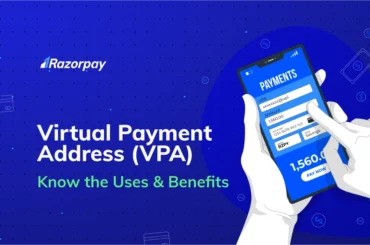National Electronics Fund Transfer (NEFT) was launched in 2005 and is a nationwide system that is used to facilitate electronic payments from one bank account to another. Individual customers, small firms, and large corporate companies can all use NEFT to their advantage. This is because this payment mode offers a set of features that make it ideal for large and small transactions alike. This article explores the characteristics of NEFT and how it can still help customers, in spite of the dawn of faster payment solutions in India.
Related Read: What are NEFT Transaction Charges and Fees for All Banks
What are the features of NEFT?
NEFT offers a range of features that help it stand out as a convenient and hassle-free form of payment. Some of these features include the following:
Saves time and effort
With NEFT payments, all a sender must do is log into their net banking account and select the right beneficiary. He/she must enter the correct amount to be transferred and then verify the transaction. That is all it takes. The sender or the remitter does not have to send a demand draft or cheque of any kind to the beneficiary. The process of transferring funds via NEFT is quite simple and efficient.
Payments occur electronically
With more and more services available online, why should the financial sector be left behind? NEFT payments are primarily a means of transferring funds electronically. These transfers can be initiated online through net banking services at the convenience of the user. Additionally, NEFT transfers can also be made through ATMs, making this form of payment financially inclusive for citizens who may not have a bank account, net banking, or a working internet connection. As NEFT payments occur online, consumers do not need to spend time filling out paper forms, standing in long lines at the bank, submitting them to the right branch, and so on. The beneficiary also does not require paperwork. The working bank account along with the relevant details submitted online are often enough to authenticate any payments, provided OTPs or PINs are entered at the time of conducting the transaction.
Payments occur over a secure mode
Another great feature of NEFT is that payments occur over a secure mode. Banks often place multiple authentication steps to verify the sender’s identity, which ensures that issues of theft and fraud are not applicable. NEFT is managed by the Reserve Bank of India, which further adds to the overall security of this mode of payment.
Benefits of NEFT transactions
NEFT saves a lot of time and effort
To make an NEFT transaction, all you have to do is log in to your netbanking account, select your beneficiary or add one, enter the amount of money you’d like to send, and authenticate the online transaction. As simple as that!
NEFT provides high security
Payments done via NEFT are processed over a secure mode. There are multiple authentication steps in place to make sure there is no fraudulent activity while payments are made.
Using NEFT means no transaction fee
Yes, no transaction fee. As a means to promote digital transactions, RBI has scrapped transaction fees for all NEFT transactions, irrespective of your bank.
One drawback of NEFT is that it only operates during the banking hours.
Transaction fee
There will be no transaction fees for NEFT transactions. As a means to promote digital transactions, RBI has scrapped transaction fees for all NEFT transactions, irrespective of your bank.
Furthermore, as you can see, RTGS has higher minimum transaction amounts (with the lowest being Rs 2, 00,000) while NEFT has a minimum transaction amount of Re 1. This makes NEFT more suitable for the average consumer and even some businesses.
NEFT operating hours
August 2019 update: RBI has announced that from December 2019 onwards, NEFT payments will be allowed round the clock.
Consumers looking to initiate NEFT transactions must do so within banking hours. Sometimes, these can vary from branch to branch. As a general rule, NEFT transactions occur between 8:00 am to 7:00 pm on weekdays, and 9:00 am to 1:00 pm on Saturdays. NEFT transactions are also subject to any public holiday that may render banks closed. Here is a detailed understanding of neft holidays and neft timings.
This feature, though in line with its time, has now proved to be a bit of a disadvantage. NEFT does not really work as well for modern consumers looking to conduct daily payments online. This is because such transactions are facilitated through instant payment platforms, making them far more convenient as vendors can immediately verify if payments are made.
Conclusion
NEFT’s most significant advantage lies in the fact that it does not place an upper limit on the transaction amounts. As a result, this mode of payment is quite useful for businesses that must transfer large funds regularly or individuals with similar requirements. Though NEFT allows smaller transaction amounts as well, such transactions make more sense through instant payment apps, rather than NEFT. This is because NEFT operates within hourly batches of payment and may take a while to go through, depending on how quickly banks process the request.



